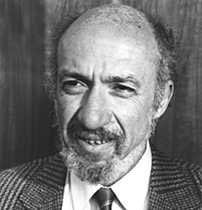|
The
Saddam Hussein
death sentence

By
Richard
Falk , TFF Associate
November 6, 2006
The timing of the death sentence imposed
on Saddam Hussein, so suspiciously convenient for Republican aspirations
in the mid-term elections, will only deepen the sectarian tensions in
Iraq, fanning further the flames of civil war. While President Bush predictably
greeted the news as yet another ‘milestone’ in the effort
of the Iraqi people ‘to replace the rule of the tyrant with the
rule of law,’ a less partisan reaction would lament the timing as
intensifying sectarian strife in Iraq that has by now become a civil war
intertwined with a war of resistance.
The American stage-managing of this judicial process in Baghdad has been
evident to close observers all along. It always seemed legally dubious
to initiate a criminal trial against Saddam Hussein while the American
occupation was encountering such strong resistance by Saddam loyalists,
especially as the US-led invasion was widely regarded throughout the world
as itself embodying the crime of aggressive war, a crime for which surviving
Nazi leaders were charged and punished at Nuremberg after World War II.
This reality constitutes a fundamental flaw in this whole judicial process.
In effect, why Saddam Hussein? Or differently, why not George W. Bush,
Dick Cheney, and Donald Rumsfeld?
The cost of this political opportunism by the United States goes beyond
the narrow circumstances of this trial. No one doubts that Saddam Hussein
and the other defendants were substantively guilty of crimes against humanity
when they killed 148 civilians in the town of Dujail back in 1982 after
a failed assassination attempt; collective punishment is an international
crime whatever the provocation. But the potential contribution to building
a legal tradition of accountability applicable to political leaders has
been undermined in this instance by the circumstances and auspices of
the this tribunal, and by the way the prosecution proceeded. Defense lawyers
were not adequately protected, and three were killed; evidence presented
to the tribunal was not made available to the defense in advance; the
judge was switched midway through because he was alleged to be too permissive
toward those accused; there were no international judges on the tribunal;
and some of the evidence appeared to be fabricated. Justice is not done
if the appearance of justice is not present. This is particularly true
if there is deep political cleavage about whether those accused should
be prosecuted in the first place.
Finally, the impact of this death sentence is morally and politically
questionable. At this point, internationally, a death sentence is not
considered to be an acceptable punishment; the International Criminal
Court, and other international criminal tribunals, reject capital punishment
as an option. Almost all political democracies in the world have done
away with the death penalty, and so to impose it here, especially by way
of hanging, can only be regarded as an expression of primitive vindictiveness,
an act of vengeance far more than an expression of justice that brings
discredit to the whole process.
Politically, as the sectarian demonstrations
throughout Iraq have already demonstrated, the verdict at this point by
an Iraqi tribunal acting under the authority of the American occupier,
intensifies the problematic situation in the country. It fans the flames
of Sunni/Shi’ia strife, which possesses most of the characteristics
of a civil war, and it reinforces the impression of an aggressive occupier
imposing its historical narrative on a still deeply divided society. It
also poses a dilemma. If the death sentence is carried out, it will ensure
Saddam Hussein’s status as a Sunni martyr, and make even more unlikely
an accommodation among Iraqis as an alternative to civil war. On the other
hand if the sentence is not carried out, it will give further evidence
that this is a political, not a legal, process, and sadly, encourage the
most cynical views of these efforts to hold political leaders responsible
for crimes of state. As well, it will sustain Saddam Hussein’s claim
to be still the leader of the Iraqi people, a hero in captivity.
All in all, the outcome of this first trial against the Ba’athist
regime of Saddam Hussein, should have been internationalized, or at the
very least, waited until normalcy had been restored in Iraq. To convert
this criminal process into a tool to vindicate the narrative of the Bush
administration as to what was achieved in Iraq by the invasion and occupation
was itself misguided even if the only audience was here in the United
States. By now, even naïve America no longer listens when Washington
claims that another milestone establishes progress in the war. As the
milestones pile up, so do the bodies!
Get
free articles &
updates
© TFF & the
author 2006

Tell a friend about this article
Send to:
From:
Message and your name
|